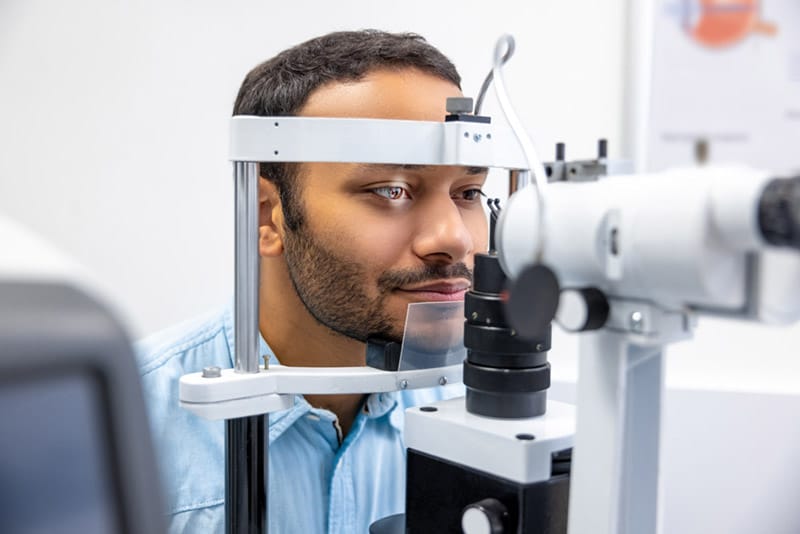Routine Eye Care
Healthy vision starts with a routine eye exam.
Protect your eyes and ensure your sight lasts a lifetime by scheduling routine eye exams at least once every two years. If you have a medical condition such as glaucoma, cataracts, or diabetes, your doctor may recommend having your eyes checked every year.
Why Are Eye Exams Important?
Routine eye exams act as a preventative measure against diseases that can damage your eyesight. Conditions such as glaucoma or diabetic retinopathy have no visible symptoms, which makes them difficult to diagnose without an exam. Many patients don’t even realize they have an eye disease until they experience vision loss.
Routine eye exams help detect eye problems at their earliest stage. This means your eye doctor will have the best chance of providing treatment to help correct or modify changes to your vision.
How Often Should I Have an Eye Exam?
There are several factors that determine how often you need an eye exam. Age, overall health, family history, and whether or not you wear glasses or contacts all affect the frequency of eye exams. Here are some general guidelines based on age:

Eye surgery, glaucoma, cataracts, and diabetes may also determine how often you need an eye exam. Your doctor will make a recommendation after your initial visit.
What Happens During an Eye Exam?
A routine eye exam typically involves a series of tests to evaluate your vision and screen for eye disease. Your eye doctor will use various instruments to examine your eyes for vision problems such as nearsightedness, farsightedness, astigmatism and presbyopia.
The interior of your eyes will also be examined in order to rule out eye problems such as glaucoma, cataracts, or macular degeneration. If a contact lens fitting is requested, that will usually take place at the time of your routine eye exam. You will also be asked to answer questions about your health, current medications, and vision history. These questions help your doctor evaluate your risk of eye disease. Make sure to provide specifics so your doctor has as much information as possible.
What Can Routine Eye Exams Detect?
Eye exams can detect conditions such as glaucoma and cataracts, as well as whether or not you may need vision correction. A proper routine eye exam can help you decide between glasses, contact lenses, or surgery to correct your vision. Alongside glaucoma and cataracts, routine eye exams can also detect retinal disorders like macular degeneration & diabetic retinopathy.
Are Routine Eye Exams Worth It?
Without a routine eye exam, it’s almost impossible to tell whether or not you’re developing an eye condition. Whether or not your vision is being actively affected, eye exams will help you find the peace of mind that your eyes are as healthy as you may hope. In addition, you can catch conditions before they worsen, as well as learn about whether or not you may need vision correction soon.



